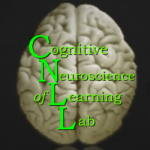concept knowledge
concept knowledge + STEM expertise

How does the information we receive from our senses form lasting conceptual representations in the brain? How do these representations form a foundation on which we build new abstract concepts?
Humans possess a unique ability to construct new knowledge not only through our own perceptions and actions, but also by learning about the knowledge and experiences of others through communication. Central questions in STEM education focus on how such abstract knowledge is best acquired and retained, such as learning about non-observable forces in physics and mechanical engineering, or underlying processes in geoscience.
In our research, we develop new tasks that probe abstract knowledge relating to these central STEM concepts, and we use neural modeling to reveal patterns of brain activity that correspond to increased levels of conceptual understanding and mastery. By improving our neural measures of concept knowledge, we can learn more about how the brain supports this type of abstract information, and we can compare different instructional approaches to determine which methods lead to the greatest learning outcomes on both behavioral and neural levels of analysis.


